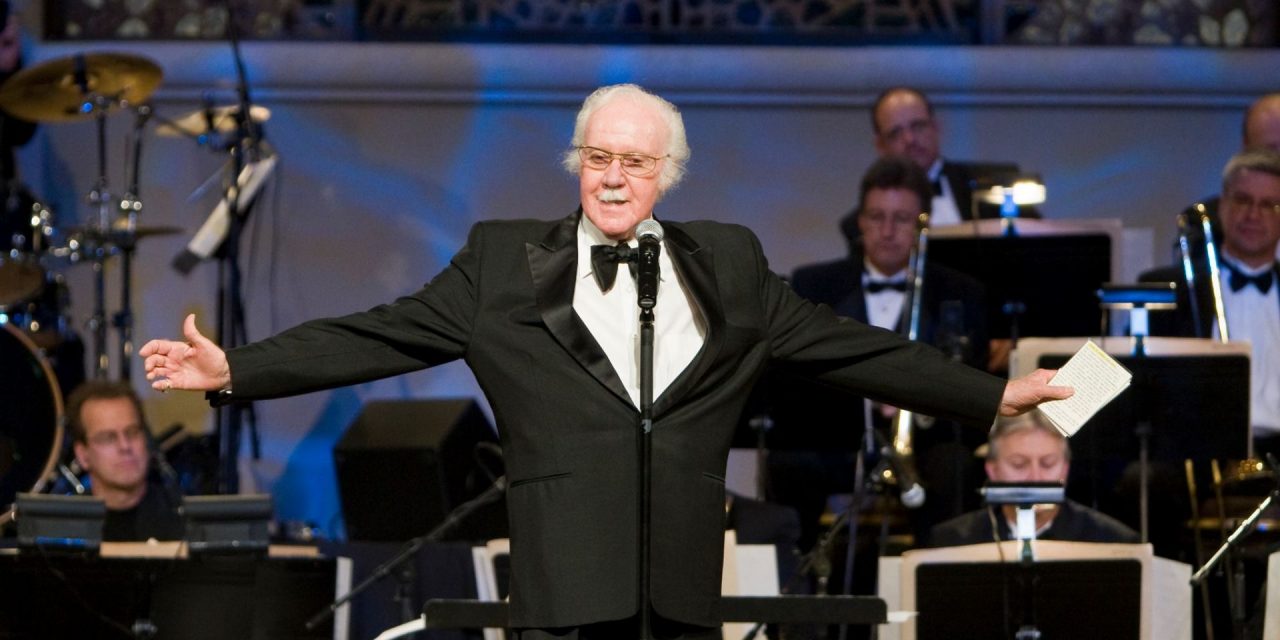NASHVILLE (BP) — Often called the “father of contemporary Christian music,” Ralph Carmichael left his mark on the music industry in seven decades and at least as many genres. Carmichael died Wednesday, Oct. 20 at the age of 94.
Planning to become a pastor, Carmichael attended Southern California Bible College. But he pursued music instead and became head of the school’s music department. The innovative, contemporary arrangements he did with the school’s various music groups and ensembles won him notoriety, but churches often found them too worldly.
In the 1950s and ‘60s, Carmichael crossed easily between working with Gospel greats like George Beverly Shea and arranging for jazz legends like Ella Fitzgerald and Nat King Cole. And all the while, he was composing music for TV shows, including “I Love Lucy” and “Bonanza,” films like the 1958 hit “The Blob” and many others.
In 1966, he founded Light Records to give voice to the growing Jesus Movement. Artists he signed, like Andrae Crouch and the Winans, soon became major players in a whole new kind of music.
“The rise of the Christian music industry is not that long of a story,” said Mike Harland, associate pastor of worship at Jackson, Miss., First. “Just 40 years ago, there really was no such thing as a genre of Christian music. It grew out of the Jesus Movement.
“Ralph Carmichael was one of those legitimate music industry executives that built the bridge between what was happening in the Jesus Music movement… to the church itself.”
Harland knows a thing or two about church music, having served for several years as the director of Lifeway Worship before returning to local church ministry. He first encountered Carmichael’s work singing in youth choir.
“He was the father of the youth musical,” Harland said of Carmichael, whose work in musicals like “Tell It Like It Is” and “Young Messiah” was performed in churches far and wide. “When it came to the Baptist tradition, his name was on it.”
Many more Christians were exposed to Carmichael’s work in film scores he wrote for the Billy Graham Evangelistic Association—20 in all, including 1970’s “The Cross and the Switchblade.” And still others might remember singing his songs—like “The Savior Is Waiting” (which Harland called “a staple of Baptist hymnody”), “He’s Everything to Me,” “Reach Out to Jesus” (recorded by Elvis Presley) and “Love is Surrender” (recorded by the Carpenters).
Perhaps his best known, most enduring work was 1960’s “The Magic of Christmas,” an album of mostly sacred Christmas songs by Nat King Cole. Carmichael’s tender, lush arrangements can still be heard just about anywhere each Christmastime, and his and Cole’s version of “The Christmas Song” is considered a classic.
Harland said Carmichael was a well-respected musician who just happened to be a Christian, which lent legitimacy to a struggling new industry.
“His faith found its expression in his life,” he said. “And his life was a musician…
“It would be very difficult to measure the impact Ralph Carmichael had on American music in general but particularly Christian music.”
Harland likened it to the “coaching tree” concept in football, when people make connections based on coaches they’ve worked with. “If there were a musician tree, it goes back to Ralph Carmichael,” he said.





